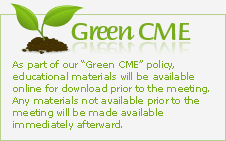-
Register Now
-
Registration for this event is currently not available. For more information, please email support or call the Special Services number listed below.
-
Download Materials
Special Services
If you require special assistance to attend this event, please call Natasha Crain at (859) 218-5747 or natasha.crain@uky.edu.
An Equal Opportunity University.

Accreditation Information
In support of improving patient care, University of Kentucky HealthCare CECentral is jointly accredited by the Accreditation Council for Continuing Medical Education (ACCME), the Accreditation Council for Pharmacy Education (ACPE), and the American Nurses Credentialing Center (ANCC), to provide continuing education for the healthcare team.
CME
This live activity is designated for a maximum of 12.75 AMA PRA Category 1 Credit(s)™. Physicians should claim only credit commensurate with the extent of their participation in the activity.
CPE
This knowledge-based activity will award 12.75 contact hours (1.275 CEUs) of continuing pharmacy education credit in states that recognize ACPE providers.
ABCP
The University of Kentucky College of Medicine designates this live activity for a maximum of 15.70 Category I CEU(s)™. Physicians should only claim credit commensurate with the extent of their participation in the activity.
The University of Kentucky College of Medicine presents this activity for educational purposes only. Participants are expected to utilize their own expertise and judgment while engaged in the practice of medicine. The content of the presentations is provided solely by presenters who have been selected for presentations because of recognized expertise in their field.
KBRC
This program has been reviewed and approved by the Kentucky Board of Respiratory Care.
CNE
The maximum number of hours awarded for this Continuing Nursing Education activity is 12.75 nursing contact hours. Will award 5.5 hours in pharmacology.
Needs Statement
Extracorporeal membrane oxygenation (ECMO) is a high-risk, last-resort life support system used for patients with severe cardiac or pulmonary failure. As ECMO continues to be a subject of ongoing research, many medical centers, particularly since the COVID-19 pandemic, are now interested in offering this treatment. However, they often have limited expertise.
The practice gap involves a lack of expertise in small rural hospitals, which often refer many of our ECMO patients. Additionally, there is a gap in understanding which patients
might benefit from ECMO support before their condition deteriorates to the point where ECMO becomes a less viable option.
Objectives
Upon completion of this activity, participants will be able to:
1. Discuss the indications and contraindications for both veno-venous and veno-arterial ECMO support.
2. Demonstrate cannulation techniques and procedures.
3. Review procedures on the necessary post-ECMO care, including lab tests, anticoagulation management, sedation, preventative measures, and ECMO circuit safety checks.
4. Recognize signs that a patient is ready to be weaned off ECMO
5. Clarify procedures for decannulation, as well as the subsequent care required.
Target Audience
physicians, pharmacists, nurses, respiratory therapists, and perfusionists

